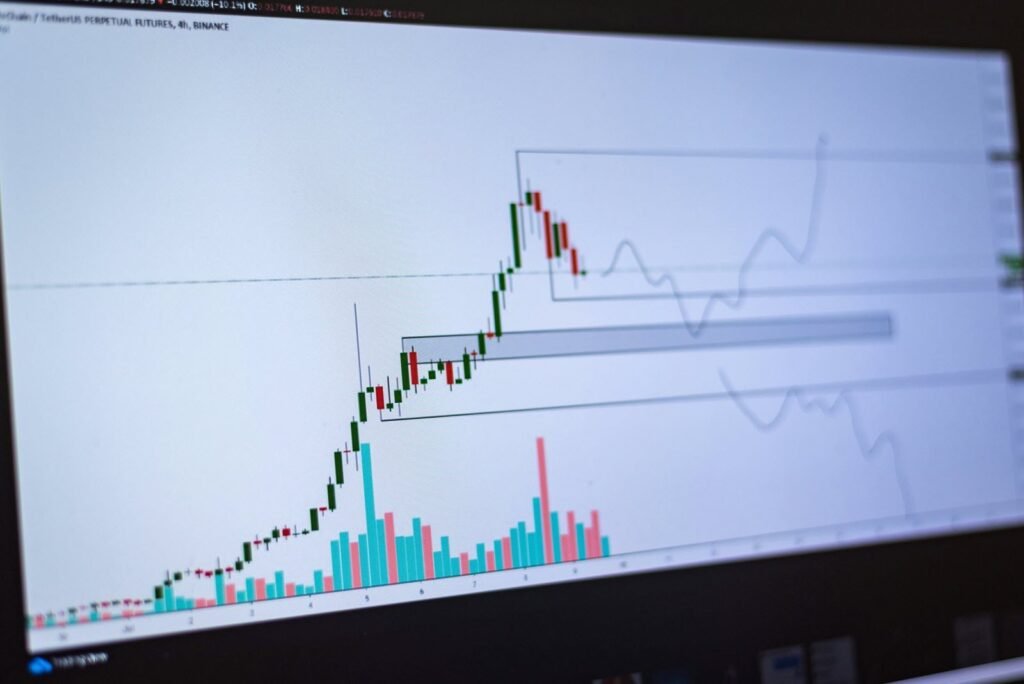What Is the Stock Market?
The stock market is the heart of the world’s economy, bringing investors on board and allowing companies to issue their needs. Knowing how to invest in stocks becomes a much easier task once it is clear how the stock market operates. It is not simply a spatial or conceptual area in which stock assets are traded; it is a responsive environment in which a mixture of stock, bond, and derivative resources are actively traded.
How Does the Stock Market Work?
 The public stock market functions in the same manner as any other marketplace, with institutions and individuals trading shares of companies that are publicly traded. Anyone who buys a ‘share’ of a company owns a fraction of that company. You are buying a stake in a company when you purchase a stock. If the company is successful, the worth of your owned shares may appreciate, and the selling of those shares will bring returns. Additionally, some firms do not only pay out shares naturally but offer dividends to their stakeholders as well.
The public stock market functions in the same manner as any other marketplace, with institutions and individuals trading shares of companies that are publicly traded. Anyone who buys a ‘share’ of a company owns a fraction of that company. You are buying a stake in a company when you purchase a stock. If the company is successful, the worth of your owned shares may appreciate, and the selling of those shares will bring returns. Additionally, some firms do not only pay out shares naturally but offer dividends to their stakeholders as well.
A stock market consists of central marketplaces where stocks are marketed, including the NYSE and NASDAQ. All companies that have lined up in these exchanges are listed stores that must always be in tight guidelines to guarantee that there are high transparency levels to avoid exploitation of the investors.
Supply and demand are one of the main factors in understanding the stock market. For any stock, its price will either increase or decrease depending upon the number of investors who are willing to buy or sell that stock. In this case, higher demand leads to higher prices for stocks, while lower demand means lower prices.
What Are the Components of the Stock Market?
In order to understand how to invest in stocks, it is useful to dissect the stock market into a number of its components:
1. Stock Exchanges
Stock exchanges are places or venues where buyers and sellers meet to trade companies’ shares. In the US, the two main stock exchanges are the NYSE and the NASDAQ. Each marketplace has conditions that must be complied with before a company can list its stocks; the companies listed in a marketplace must comply with standards issued by that marketplace. Both of these trading venues are under the supervision and control of the Securities and Exchange Commission (SEC) in order to avoid abusive practices in trading.
2. Stockbrokers
An investor typically does not go directly into the stock market. Instead, they speak to or deal through a stockbroker. However, it isn’t likely for most investors to directly purchase shares off of an exchange itself. Therefore, they seek the assistance of brokers, who purchase or sell on their behalf. Unfortunately, only wealthy individuals had the ability to invest with a broker in the past. But that changed with online brokers. Today, individual investors can go through a more direct and economical way of trading. Good examples of such platforms are Robinhood and E*TRADE, which allow users to buy stocks easily.
3. Shares
A share is a fraction of ownership that a person may possess in a company, and the number of such shares or units is determined by the company itself. Together with other owners, a shareholder owns a portion of the company and may receive dividends and some degree of voting power concerning various matters regarding the running of the business.
4. Market Indices
These indices include a variety of stocks or securities within them and are referred to as market indices. These indices also indicate the performance of a specific industry or even the overall market. For instance, the S&P 500 is based on the stock value of 500 large American firms, and the Dow Jones Industrial Average (DJIA) has 30 major corporations. Learning how to read indices can be especially helpful for investors new to the arena of stock investment, as it gives an idea about the prevailing market climate.
What Are the Factors Affecting Stock Prices?

These prices are the combination of several different factors. Most importantly, there is the principle of supply and demand regarding stocks. However, many other factors play significant roles as well:
- Company Performance: The activities and financial standings of companies, such as their turnovers and expected growth, greatly affect their share prices, where even the investors are examining these figures to assess whether the stock prices have been deep or too high.
- Economic Conditions: Other prospects include interest rates, inflation, and unemployment, which have a bearing on the stock market. When the economy grows, consumer expenditure increases, expanding businesses and, hence, stock prices.
- Market Sentiment: There are times when stock prices move up and down due to the sentiments that exist in the market. This recurses to a situation when the sentiment of the target fault becomes excessive with a feeling of fear or optimism. Even social and political developments can be important.
- Global Events: Stock prices can also be affected by widespread events such as war, international disputes, trade agreements, and public health issues such as an epidemic or pandemic. The stock market was quite turbulent, for instance, during the COVID-19 pandemic.
Common Questions About the Stock Market
Q1: Is it possible for anyone to participate in stock market investment?
Yes, the stock market has investors of all sorts. Those who have a cash account and a brokerage firm can manage a liquidity account. Most brokerage firms allow investors to enter the platform with a minimal amount of money. As with anything worth buying or investing in, it’s essential to do your due diligence before laying your funds on any stocks.
Q2: How Much Money Do I Need to Start Investing in the Stock Market?
There is no set dollar figure needed to make your first investment in the stock market. Some platforms allow investors to buy fractional shares, focusing on investments with a lower stake. What is needed is discipline—putting money into the market at regular intervals, even small amounts, can give impressive results over time.
Q3: Do I Have to Be Concerned About Stock Market Investing?
Yes, there are risks to consider. Stock market investing is risky, especially for beginners. Share prices in the stock market are never fixed, and there is always a risk of making a loss. But with appropriate measures such as adopting diversified investments and making long-term decisions, it is possible to manage these risks efficiently.
Conclusion
It is evident that the stock market is one of the vehicles that can build wealth, and the first step to learning how to invest in stocks is understanding how this mechanism works. A stock is a share of a company that can be bought and sold at a stock exchange, e.g. NYSE, NASDAQ. Just like everything else, the price of shares is influenced by demand or supply.
The keys to successful investments, even in a volatile market, are patience and strategy infused with continuous education to help you read the trends in the markets. This knowledge allows you to make favorable transactions for your portfolios.
References:
- Investopedia: Stock Market Basics
- PlutusInvestor: Investment Strategies for Beginners
- PlutusInvestor: How to Start Investing in 2024



